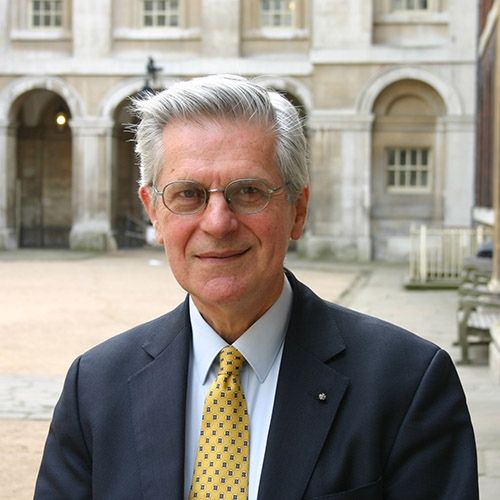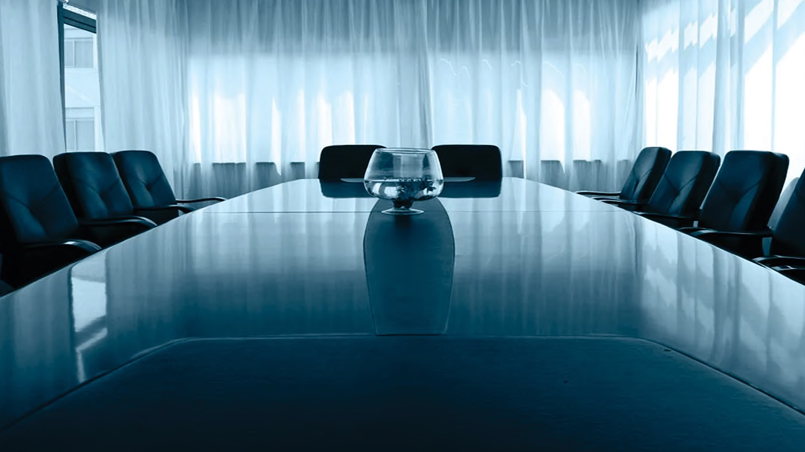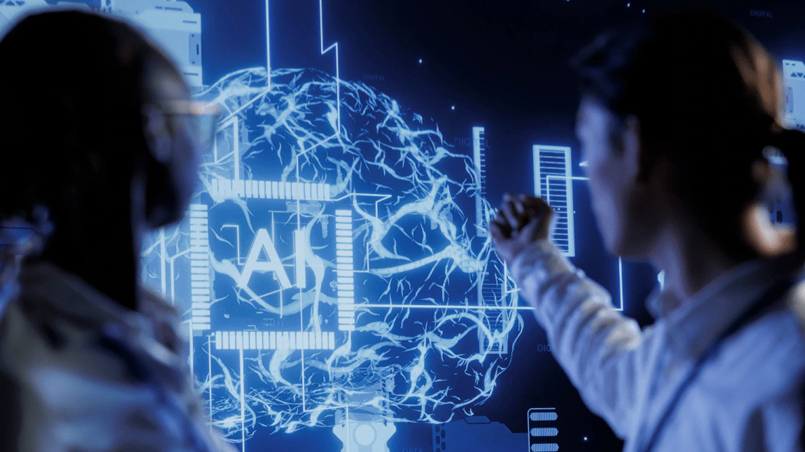Accelerating Environmental and Climate Action

How bias, misinformation and disinformation can discredit and delay
The current aspirations, activities, and lifestyles of many communities and societies are not sustainable. They are degrading eco-systems, reducing biodiversity, using up natural capital and rare minerals that will be required by future generations, and exacerbating inter-related global risks and existential threats, including global warming and climate change. Rising negative impacts of human activities and business operations are also being boosted by rapidly expanding populations, especially in developing countries, and an almost universal corporate and governmental obsession with unsustainable growth. Other species are becoming extinct at an increasing rate, and longer-term human survival seems unlikely.
The more dire the warnings, the more frenzied the destruction of ecosystems and the spread of monocultures seem to be. People, companies, and countries scramble to grab what is left and obtain exploitation rights while there is still time. The challenges human societies collectively face are increasingly evident. They are spelt out in a variety of authoritative reports and underpinned by an over-whelming scientific consensus. They are also regularly discussed at international meetings, including conferences of the parties (COPs), and at annual events such as IOD India's International Conference on Environment Management and Climate Change. Yet agreed collective action is often too little, too late. Why is this?
Realists expect others to put their own interests ahead of the common good. Sales teams routinely exaggerate the merits of offerings, underestimate lifetime costs, make bold ease of use claims, and play down the drawbacks of their company's offerings. Many directors prioritise short term earnings that fund their salaries and bonuses over negative externalities, whose full impacts may be felt after they have retired. Like politicians who say one thing and do another, boards often have much experience trying to satisfy competing claims for a larger proportion of value created while keeping all stakeholders onside. Fossil fuel companies and oil states likewise protect their interests. How do they delay needed progress?
Recognising bias, misinformation and disinformation
Directors need to be alert to the reality that the information, reports, and papers they receive about the environment and climate-related issues may be unconsciously or intentionally biased for or against certain arguments, proposals, or policies. Their own assessments of them may also be liable to confirmation bias, or the tendency of people to put more weight on evidence and views that agree, reflect, and/or reinforce their existing beliefs, perspectives, values, and/or views. Unconscious bias, whether due to social background, ingrained habits, shared group preferences, upbringing, political views, or prior experience, can distort opinions and result in underestimations and overestimations, opportunities being missed, and warnings being ignored.
A lack of diversity in potential influencing factors such as social and/or educational background when selection committees favour candidates like themselves can result in groupthink. It may also make a board more vulnerable to misinformation and disinformation, the top 'next two years' risk in terms of severity of impact in WEF's 2024 Global Risks Report. Misinformation, such as fake news, on social media can be shared by those who do not realise its limitations. It may be created and spread by mistake, rather than with the intention to deceive, as it the case with disinformation. Something that might be relevant and apply in one location or context may not be applicable, correct, or relevant in another.
Misinformation and disinformation are especially widespread in relation to environmental management and climate change. Directors need to be alert to the reality that the information, reports, and papers they receive about the environment and climate-related issues may be unconsciously or intentionally biased for or against certain arguments, proposals, or policies.
Misinformation and disinformation are especially widespread in relation to environmental management and climate change. A range of special and vested interests actively seek to protect existing activities by frustrating efforts to cut carbon emissions and operate more sustainably in order to accelerate progress towards net zero. Various attempts are made to delay, disrupt, and/or frustrate steps to reduce and/or prevent damaging activities and negative externalities, and discredit, oppose, and/or undermine initiatives, proposals, and voices in favour of faster and more radical steps. What laggard tactics should one look for?
Undermining or delaying environmental and/or climate action
Some opponents of proposed actions may question the need for them, their nature, scale, and/or timing. They might suggest alternative courses of action or that something else is the source of what has been identified as a problem. Despite an overwhelming scientific consensus that human activities are responsible for global warming and climate change, climate deniers still exist. They may suggest natural cycles of various lengths as a root cause, stress the extent of large past variations in temperature, and highlight the resilience of some natural systems. Sceptical scientists may be identified, approached, and sponsored to produce counterarguments that might gain traction and result in uncertainty.
Official media in democratic countries often like to present contending views. A contrarian opinion may get the same airtime as a more widely held position. Strong arguments may also achieve greater impact than more considered ones. There are also those who exaggerate their efforts to protect or restore the environment. Greenwashing abounds. Despite attempts to encourage more accurate, transparent, and responsible reporting, disclosures that have not been subject to independent audit and verification are treated as public relations exercises. People and organisations are presented in the most favourable possible light. Comments on social media are often not subjected to extensive or rapid fact-checking procedures.
Some attempts to delay environmental or climate action are portrayed as responsible. While accepting that action is required, questions are asked about their timing. The unwelcome consequences of proposed actions are highlighted. Attention may be drawn to vulnerable groups or communities likely to be disadvantaged. Allowing time to consider what might be done to help those affected could be suggested. This can seem caring. Urgency is downplayed, and the case for waiting to allow innovations to emerge might provide less painful alternatives to scaling back and shutting down existing activities. Holding fire can also appeal to climate skeptics and those who are already busy and not looking for extra work.
Shifting the spotlight and altering perspective
Another delaying response is to 'shift the spotlight' and suggest that action by someone else or another party might be more appropriate. Comparisons could be made with other companies, sectors, or countries that have higher greenhouse gas emissions. It is often a few companies, countries, or certain sectors whose activities cause the most harm. Perhaps the onus should be upon them to change. This can appear fair and/or proportionate, as might an argument against imposing much inconvenience, loss, or pain for a limited gain. It could also be suggested that as businesses respond to customer demands, where and when this can be done at a profit, individuals should first change their aspirations, requirements, and priorities.
An asymmetry is often at work, where the costs of proposed action to reduce emissions and negative externalities is already falling, or would fall heavily, on certain entities and their local communities, while their benefits would be spread more thinly across the population generally. Delay may be advocated to allow options for a more equitable sharing of costs and benefits to be considered. More radical steps may be proposed that could be undertaken by other parties and might have a greater impact. Longer lead times to enable smoother transitions and/or alternative arrangements to be considered can also appear reasonable and responsible.
Misrepresentation can include the portrayal of a genuine attempt to protect, safeguard, or restore eco-systems as a conspiracy designed to undermine or attack the best interests of a company, sector, or society. It may represent polluters or sources of damage or harm as a target or victim and suggest that those seeking to limit their activities, which may meet consumer demands, or are needed and contribute to national objectives, should be opposed. In authoritarian societies, controls may be introduced to constrain the freedoms and actions of those seeking to reduce environmental damage and global warming by steps that would reduce lucrative activities a regime depends upon and so seeks to encourage and protect.
Recognising the fragility and limits of resolve
Growing numbers of people are impacted by negative externalities such as global warming, which environment and climate action are designed to address. People sometimes change their opinions when they become more aware of how they, as individuals, their companies, and/or their families might be affected. Addressing climate change and reducing extreme weather events can seem imperative as flood waters rise and when wildfires are approaching. However, memories are sometimes short, especially when it is others who are affected. As estimates of the cost of what needs to be done mount and awareness of likely disruption and inconvenience increases, it may appear to be a lower priority. Support can sometimes be shallow.
Emphasising the downsides, challenges, and risks of change can sometimes encourage a rethink. Important stakeholders likely to be affected by what is being considered or proposed can also advocate caution. These could include key customers and/or influential investors. Updates on how others are reacting, criticism and media attention, news of competitor moves, changes in public policy, financial pressures, and dire predictions could all precipitate a slowdown or pause. Existing opinions and positions should not be taken for granted. In some countries, reactions against ESG and the scaling back of previous net zero plans have already occurred. Accusations are made that equivalent players are not pulling their weight.
Whether realists or defeatists, there may also be those who argue that it might already be too late to take effective action. Proposers of well-intentioned measures may have already missed the boat. It may become clear from certain scientific reports, regular meetings, or conferences of the parties to an international treaty that commitments made are insufficient to prevent the triggering of the remaining tipping points, after which global warming becomes unstoppable. Realities may suggest that collectively, humankind has forgone chances to act. Delayers and opponents of tougher climate action might capitalise on pessimism by arguing that people's current living standards should not be sacrificed in pursuit of aims that are not achievable.
Competing claims on responsible leaders, fragmentation and polarisation
Climate change is not the only issue on many leaders agendas, but for climate action delayers it might be a priority. Fossil fuel companies have long had a vested interest in opposing the phasing out of fossil fuels. For many years, they argued that human contributions to global warming had either not been proven or were greatly overestimated, often quoting the views of scientists and lobbying organisations whose activities they funded. Some far-right political parties have also been climate deniers or opposed to the cost of proposed actions to address climate change. Techniques to divide and undermine have been used. Significant use has also been made of social media and selected influencers to express their views.
As the use of social media has increased, the circulation and revenues of traditional media have fallen, making it more difficult for them to pay the salaries of journalists to investigate, fact-check, and produce in depth reports on selected topics. In contrast, the content of social media is provided by many of its users. Those with controversial, extreme, and polarising views are especially welcome, as they provoke others to respond, increasing visits and advertising revenues. Few social media users appear to have the inclination and time to read in depth articles.
A challenge for those countering simplistic or erroneous views is the extent to which many challenges, issues, risks, and threats are interconnected and interrelated. Addressing one issue can sometimes 'fuel a fire' elsewhere.
Confident statements and unsubstantiated claims seem to rule the roost. They result in the polarisation and fragmentation that are seen in many parts of the world.
Many technology firms make money from misinformation on their platforms and social networks. It can be monetised and stimulates visits and interactions. There is little financial incentive to contain or root it out. Algorithms can be used to identify the views of social media users and present content that will reinforce them. Repetition and echoes of others repeating claims can make them seem more believable. Significant sums can be spent on persuasive advertising designed to encourage consumption while the means to supply the want created still exists. Responsible independent directors could ask executive colleagues how long certain necessary resources might still be available at the current rates of their usage.
Embracing responsible leadership
The nature and scale of changes required to prevent the further extinction of species, the destruction of ecosystems, and global warming, and the burdens this would impose upon others, are such that cautious decisionmakers may try to avoid moving too far ahead of the pack. While monitoring the activities and initiatives of others and doing just enough to comply with applicable regulations and relevant legislation and satisfy ESG and other criteria, some players may prefer to follow rather than lead. While not wanting to fall behind or be labeled a laggard, they may feel exposed and vulnerable when too far out in front. How might efforts to delay and prevent responsible environmental and climate action be tackled?
A first step is to make people aware of the nature, extent, and impact of bias, misinformation, and disinformation, and to help them to recognise them when they occur and understand their different forms, why they are used, and by whom and for what purpose. They can be damaging to those targeted and to the people they are trying to help. They can erode public trust and undermine codes of conduct, regulations, and changes that are necessary for the public good. They can also erode self-confidence and sow doubt. In some cases, they may delay or prevent necessary climate adaptation and mitigation and desirable and responsible responses to environmental and climate change challenges, risks, and existential threats.
Countering obstacles to environmental and climate action
Refuting unsubstantiated claims with objective and science-based arguments may be difficult when those targeted have short attention spans and a preference for strongly stated opinions and clear positions. Balanced views with qualifications and supporting evidence might seem boring in comparison with bold, if not outrageous, claims. Messages should be tailored to those for whom they are intended. While certain forms of misinformation and disinformation could possibly be countered by changes in the law and/or new regulations, some business leaders might be instinctively wary of such interventions, even though they may be necessary if action is needed. Governments favouring the status quo may prevent or not enforce them.
Countering delaying tactics could begin with articulating a shared purpose related to operating sustainably and in harmony with the natural world to preserve a habitable planet and ensure the survival of humans and a diversity of other species. Related behaviours could include following certain principles and relevant codes of conduct, being authentic, open, and transparent, and reestablishing or consolidating trust, including by subjecting data and positions taken to independent audit and scrutiny. Strategies, goals, stakeholders, policies, processes, and practices should be aligned with the shared purpose. Responsible leaders offer hope and provide encouragement with balanced, positive, and justifiable communications.
Given widespread and short-term self-interest and vested interests seeking to frustrate necessary action to ensure the planet remains habitable and limit global warming, responsible leaders may have to give countering bias, misinformation, and disinformation a higher priority. Claims made should be evidence-based, truthful, and verifiable. Comparisons with others and alternatives should be accurate and balanced. Actions and responses should be appropriate and proportionate. Efforts should be made to understand rather than conceal the full extent of impacts upon the environment and climate change by taking the activities of supply and value chain partners and the full life-cycle impact of offerings into account.
Embracing complexity and interconnectedness
A challenge for those countering simplistic or erroneous views is the extent to which many challenges, issues, risks, and threats are interconnected and interrelated. Addressing one issue can sometimes 'fuel a fire' elsewhere. Like biases and predilections, environmentally harmful practices that businesses find they can 'get away with' can spread and be repeated in multiple locations and sectors. Labels such as 'disposable' or 'throw away' society are applied to practices such as encouraging items to be replaced before they come to the end of their useful lives or manufactured with certain elements designed to fail long before others with replacement purchases rather than repair suggested.
Built in obsolescence, frequent model changes, limiting the availability of spare parts, stopping the support of older versions, and persuading consumers and users to be 'fashionable' and seen with the latest version of an offering can all encourage churn, boost sales, consume resources, and add to waste. Responsible leadership, communications, legislation, and/or fiscal incentives could all encourage the recycling of more categories of manufactured goods. Items could be designed so that they might easily be disassembled or taken apart, so that they could be re-paired, re-used, replaced, or upgraded. This may increase their appeal among new generations of environmentally conscious consumers.
Allies and supporters can help people, organisations and communities refocus on environmental and climate action. There may be responsible environmental campaigners or circular economy experts with whom one could work. The EU has various actions in its circular economy plan, which, like measures in proposed directives, might have potential relevance and applicability in other jurisdictions. Learning from other locations can help dispel the protestations of delayers that practical options do not exist. Indigenous people who live in harmony with the natural world could have a role to play in education or as advisers in introducing biodiversity into monocultures and sustainable environmental management.
Collaboration and collective action
Collaboration can be an effective counter to those who suggest that by itself a company could not do enough to counter a threat, or re-invent, restore or re-wild. Defensive strategies to slow or prevent unwelcome proposals for change, sometimes just shift problems rather than tackle them. Activities that produce environmentally harmful emissions in locations with tightening controls can be moved offshore to where there is lighter touch regulation. Waste is transported to remote islands and/or combustible waste burned where only the poor and marginalised without a voice may be affected by the toxic fumes. Connection and collaboration with people 'on the ground' may enable such practices to be exposed.
In some boardrooms, contrarian thinking, and a change of direction might be required to make colleagues aware of the dangers of bias and groupthink. For example, their creators, providers and beneficiaries advocate the ever more widespread use of digital technologies which increases IT outage risk and the power demand of data centres worldwide. How much of this derives from renewable sources? For how much longer will the mineral and other resources that data centres require still be available? In many companies and for the future of humanity, thinking independent directors and the challenge they can or could provide, might be a last and critical line of defence. They are needed more than ever on corporate boards.
Author

Prof. Colin Coulson-Thomas
Director-General of IOD India for UK and Europe operations
Prof. (Dr) Colin Coulson-Thomas, President of the Institute of Management Services and Director-General of IOD India for UK and Europe operations. He has advised directors and boards in over 40 countries.
Owned by: Institute of Directors, India
Disclaimer: The opinions expressed in the articles/ stories are the personal opinions of the author. IOD/ Editor is not responsible for the accuracy, completeness, suitability, or validity of any information in those articles. The information, facts or opinions expressed in the articles/ speeches do not reflect the views of IOD/ Editor and IOD/ Editor does not assume any responsibility or liability for the same.

 Quick Links
Quick Links
 Connect us
Connect us




 Back to Home
Back to Home






























